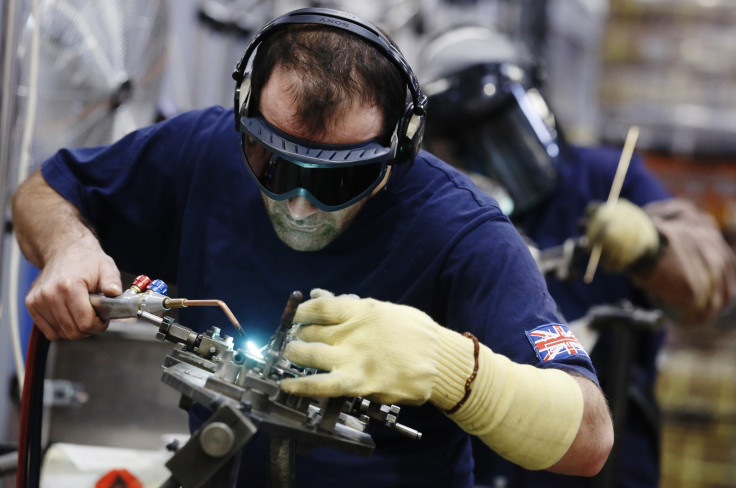PMI Data For January Show Continuing Rebound In UK, Euro Area Manufacturing Sectors; Euro Area Manufacturing PMI At 32-Month High

Data from the Purchasing Managers’ Index, or PMI, released Monday showed that growth in manufacturing sectors in the UK and the euro area was led by a pick-up in demand from domestic and overseas markets coupled with an increase in the number of jobs created.
The final reading of manufacturing PMI for the euro zone came in at a 32-month high of 54.0 in January compared to 52.7 in December, as Germany led growth in the sector while Greece moved back into expansion territory.
“The survey data indicate that manufacturing output across the eurozone is growing at a quarterly rate in excess of 1%, led by Germany, where the rate of increase is perhaps as strong as 3%,” Chris Williamson, chief economist at Markit, said in a statement adding that the most crucial part of the latest data is “the further revival of manufacturing in the region’s periphery.”
“Both Italy and Spain are seeing robust growth of output and order books, and the Greek PMI’s rise above 50 for the first time since August 2009 is an important signal of how even the most troubled member states are returning to growth,” Williamson said. A reading above 50 indicates expansion while one below 50 indicates contraction.
In the UK, a near three-year record growth in export demand helped the manufacturing PMI up to 56.7 in January. While this seasonally-adjusted number is below December’s 57.2 reading and, is at its lowest level in three months, it’s significantly above the series average of 51.3, a statement from Markit and the Chartered Institute of Purchasing & Suppy, or CIPS, said.
“Although the pace of output expansion has cooled slightly in recent months, growth is still tracking at one of the highest rates in the 22-year survey history. The broad base of the upturn is remarkable, with its benefits being felt across all product categories,” Rob Dobson, a senior economist at Markit, said in the statement.
UK's January reading was aided by a strong growth in orders from the domestic and overseas markets, the Markit-CIPS statement noted, adding that the growth in export demand was broad-based, with orders flowing in from North America, mainland Europe, Asia, Brazil, Scandinavia and the Middle East.
January also saw an increase in employment in manufacturing for the ninth-straight month.
“The ongoing improvement in the labour market in January adds further to the prospect of unemployment dropping below 7% imminently,” Dobson said in the statement.
Markit’s Williamson noted that the latest data from the euro area would ease pressure off the European Central Bank, or ECB, to increase stimulus but added a note of caution, saying:
“Price pressures, and the threat of deflation, will no doubt remain a key concern for the ECB, especially as growth of both input costs and selling prices eased in January.”
© Copyright IBTimes 2025. All rights reserved.




















